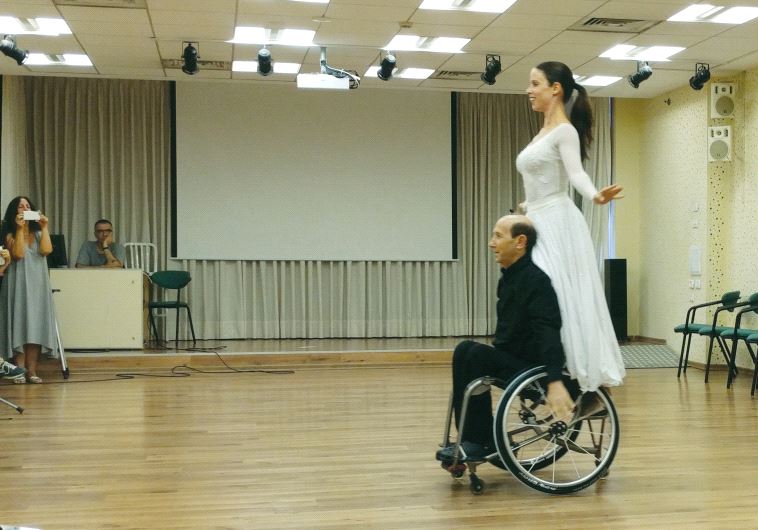Sisters in arms: Female veterans from the US and Israel combat trauma together
Heroes to Heroes launches a pilot trip exclusively for female veterans.
 A dance performance by Adam Greenfeld and Tal Galor at Beit Halochem, Tel Aviv(photo credit: ARIANE MANDELL)
A dance performance by Adam Greenfeld and Tal Galor at Beit Halochem, Tel Aviv(photo credit: ARIANE MANDELL)